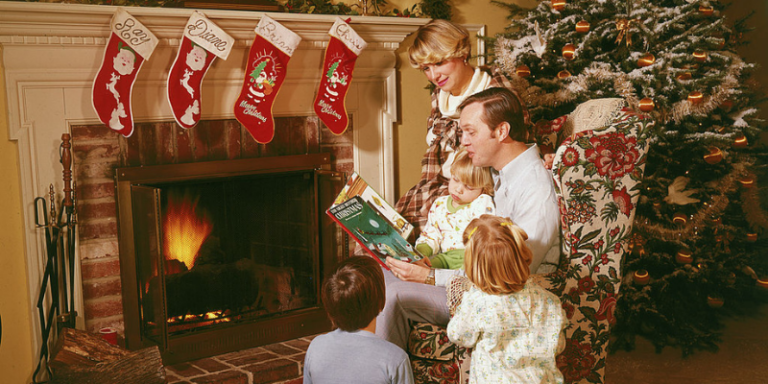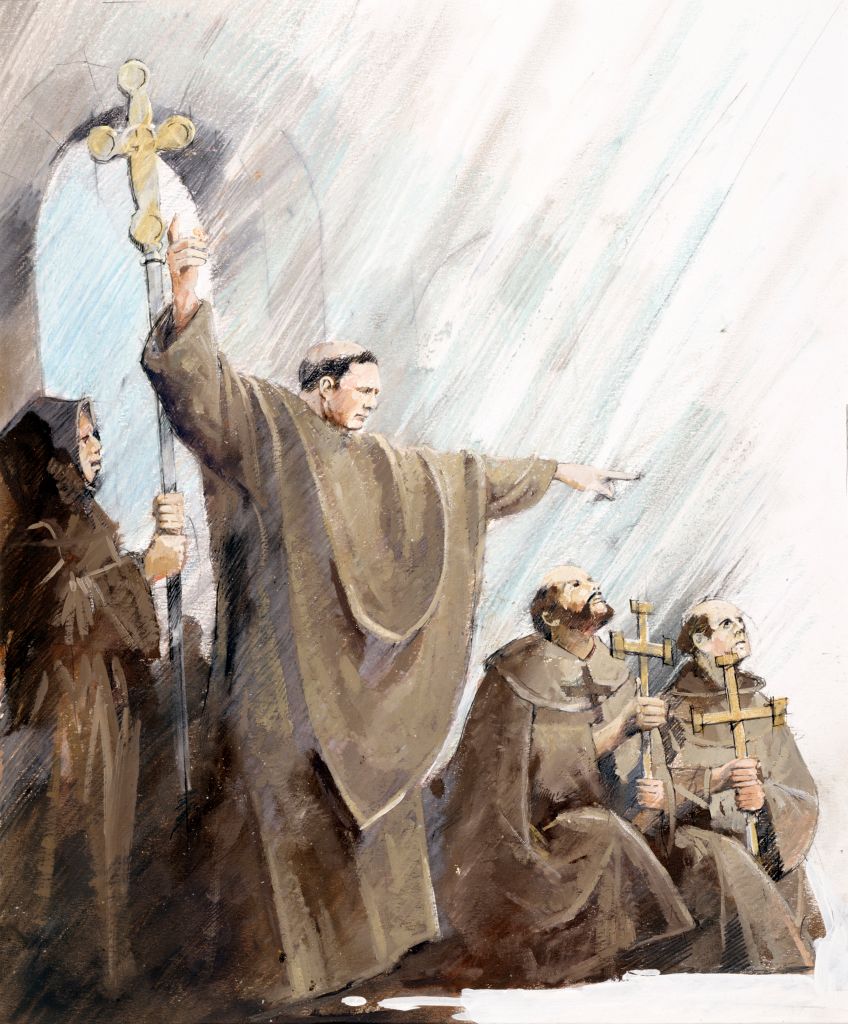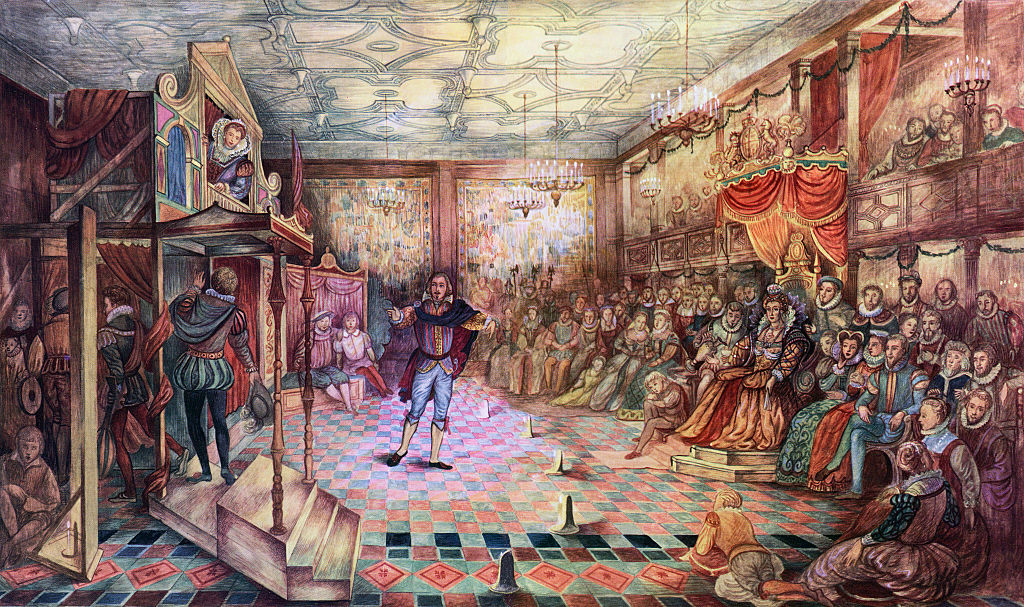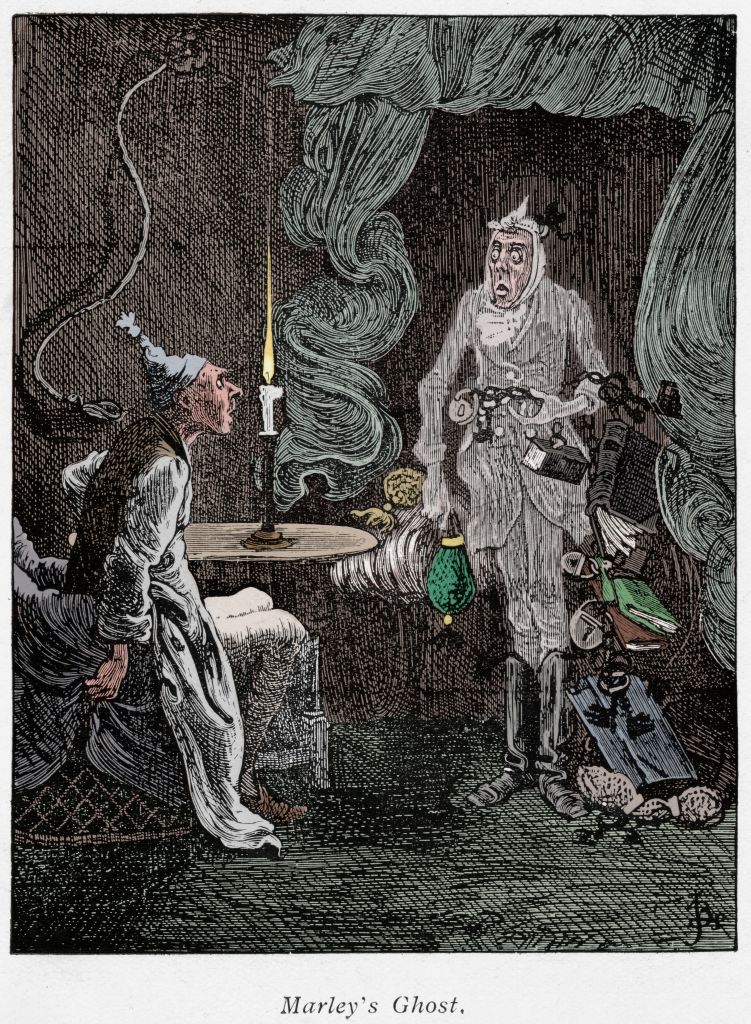The History of Christmas In Literature
Our Christmas traditions may not be as old as you think.
By: Laura Valkovic | December 25, 2020 | 804 Words

(Photo by Lambert/Getty Images)
Christmas is an old and a young holiday. Christians are celebrating the birth of Jesus Christ over 2,000 years ago, but many of the traditions we know today are only about 100 years old.
For centuries, Christmas was only a minor event. Easter was the main Christian holiday – although the date of December 25 was celebrated for the pagan festival of Yule. The word Christmas comes from the Anglo-Saxon “Cristesmæsse,” a term first recorded in 1038.

‘Worship In The Chapel’ by Ivan Lapper. (Photo by English Heritage/Heritage Images/Getty Images)
The Catholic Church transformed Yule into Christmas, but it did not look like today’s celebrations, full of feasting and gift-giving. It was a somber time of worship. According to the 8th-century cleric Ecgbert of York:
“[T]he English people have been accustomed to practise fasts, vigils, prayers, and the giving of alms both to monasteries and to the common people, for the full twelve days before Christmas.”
Over the centuries, a few Christmas traditions developed. Peasants were granted 12 days off to celebrate Christmas and New Year, ending in the Twelfth Night, but the occasion still lacked fanfare.
The Elizabethan times arrived, lasting from around 1558-1603, when Queen Elizabeth I sat on the English throne. This was the time of Shakespeare, yet the famous playwright hardly paid any attention to Christmas.
In The Merry Wives of Windsor, he mentions new years’ gifts, writing:
“Have I lived to be carried in a basket, like a barrow of butcher’s offal, and to be thrown in the Thames [river]? Well, if I be served such another trick, I’ll have my brains ta’en out and buttered, and give them to a dog for a new-year’s gift.”
While in The Taming of the Shrew, two characters say:
“Sly: Marry, I will; let them play it. Is not a comonty [comedy] a Christmas gambold or a tumbling-trick?
“Page: No, my good lord, it is more pleasing stuff.”

Illustration of William Shakespeare and the Lord Chamberlain’s Company performing ‘Two Gentlemen of Verona’ to Queen Elizabeth I, at Greenwich Palace in 1594 (Photo by GraphicaArtis/Getty Images)
Shakespeare didn’t seem to think much of the Christmas holiday. He seemed to think a good way to celebrate Christmas was to honor Christ’s birth solemnly. He wrote in the play Hamlet:
Some say that ever ‘gainst that season comes
Wherein our Saviour’s birth is celebrated,
The bird of dawning singeth all night long:
And then, they say, no spirit dare stir abroad;
The nights are wholesome; then no planets strike,
No fairy takes, nor witch hath power to charm,
So hallowed and so gracious is the time.
It was not until the Victorian era (1837-1901) that modern-day Christmas developed. With the marriage of England’s Queen Victoria to German Prince Albert, the German tradition of the Christmas tree became popular. The Christmas cracker, Christmas cards were also invented. Factories and mass production made tree decorations and gifts cheap enough for all classes in society to buy. Printing machines had the same effect for cards. One early Christmas card held at the Victoria and Albert Museum showed the message:

Scene from A Christmas Carol by Charles Dickens, 1843. (Photo by The Print Collector/Getty Images)
Wait on all
Whose hearts are turned to greet him,
For decked with smiles he comes to those
Who care with smiles to meet him,
A MERRY CHRISTMAS then to thee;
And all thou lov’st where e’er they be.
Charles Dickens helped create modern Christmas. Dickens’ book A Christmas Carol is not only a classic piece of literature that is still popular today, it also became a guide for what Christmas should look like. The story is about Ebenezer Scrooge, a selfish miser. He dislikes Christmas so much he says:
“If I could work my will, every idiot who goes about with ‘Merry Christmas’ on his lips should be boiled with his own pudding and buried with a stake of holly through his heart. He should!”
During the book, he is visited by three ghosts and learns to appreciate the meaning of Christmas. His transformation is described:
“Some people laughed to see the alteration in Scrooge, but he let them laugh, and little heeded them; for he was wise enough to know that nothing ever happened on this globe, for good, at which some people did not have their fill of laughter in the outset. And it was always said of him, that he knew how to keep Christmas well if any man alive possessed the knowledge. May that be truly said of us, and all of us!”
Christmas has changed a lot over the centuries – what will it look like in another hundred years?
















